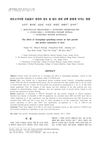 6 citations,
January 2017 in “Annals of Dermatology”
6 citations,
January 2017 in “Annals of Dermatology” Combination of 17α-estradiol and minoxidil improves hair growth and reduces hair loss in most patients.
 6 citations,
October 2000 in “International Journal of Dermatology”
6 citations,
October 2000 in “International Journal of Dermatology” Preventing hair loss is more effective than regrowth; oral finasteride is a realistic option.
 5 citations,
January 2011
5 citations,
January 2011 Gyungokgo-gamibang extract significantly promotes hair growth and increases hair thickness.
 4 citations,
February 2019 in “Biological Trace Element Research”
4 citations,
February 2019 in “Biological Trace Element Research” Chromium salts may help with insulin sensitivity in PCOS, but more research is needed to confirm their overall effectiveness and safety.
 3 citations,
September 2020 in “Molecular Brain”
3 citations,
September 2020 in “Molecular Brain” The anti-viral drug Elvitegravir may protect brain cells from damage related to neurodegenerative diseases.
 2 citations,
September 2013 in “Journal of Cosmetic Dermatology”
2 citations,
September 2013 in “Journal of Cosmetic Dermatology” Hair restoration combines drugs and follicular unit grafting for natural, long-lasting results.
 1 citations,
July 2016 in “Prescriber”
1 citations,
July 2016 in “Prescriber” Minoxidil and spironolactone slow hair loss in women.

Minoxidil helps stimulate hair growth and enlarge small follicles in common hair loss, but doesn't stop it, and its effects can be boosted when combined with finasteride.

Teprotumumab for thyroid eye disease commonly causes fatigue, brittle nails, dry eyes, hair loss, muscle spasms, and dry mouth, with rare serious events like blood clots.
 July 2018 in “International journal of clinical & experimental dermatology”
July 2018 in “International journal of clinical & experimental dermatology” Eat a balanced diet for healthy hair; only use supplements if you have a proven nutrient deficiency.

Hair loss causes emotional distress, leading to high spending on treatments, with Minoxidil and Propecia being common but having side effects.
 December 2023 in “Frontiers in endocrinology”
December 2023 in “Frontiers in endocrinology” Excess androgens may cause PCOS, not just be a symptom.

Topical minoxidil helps treat hair loss in teens, but more research needed for safe options.
3 citations,
August 2022 in “Molecules/Molecules online/Molecules annual” A new strain of bacteria from the human skin can help prevent hair loss.
 June 2024 in “Dermatology and therapy”
June 2024 in “Dermatology and therapy” Low-dose oral minoxidil is safe for treating children's hair disorders.
 May 2024 in “Medical Journal Armed Forces India/MJAFI”
May 2024 in “Medical Journal Armed Forces India/MJAFI” Both low-level light therapy and 5% minoxidil are effective and safe for treating male hair loss, with no significant difference in results.
 24 citations,
January 2017 in “Journal of Cutaneous and Aesthetic Surgery”
24 citations,
January 2017 in “Journal of Cutaneous and Aesthetic Surgery” Botulinum toxin was found to be a safe and effective treatment for male pattern baldness in a small test, but more research is needed.
1 citations,
August 2021 in “Cosmoderma” Low-dose oral minoxidil is effective and well-tolerated for treating hair loss.
June 2024 in “European Journal of Pharmaceutics and Biopharmaceutics” Using photoacoustic waves to deliver minoxidil improves hair growth effectively and safely.
 February 2024 in “International Journal of Pharmaceutics”
February 2024 in “International Journal of Pharmaceutics” A new hair loss treatment combining minoxidil and cedrol improves hair growth and reduces side effects.
 24 citations,
April 2014 in “Oncotarget”
24 citations,
April 2014 in “Oncotarget” Minoxidil can reduce functions related to androgen receptors.
 May 2023 in “Scientific Reports”
May 2023 in “Scientific Reports” The seed extract of Lepidium sativum L. can potentially treat hair loss, showing effects similar to 5% minoxidil.
 November 2024 in “Clinical Cosmetic and Investigational Dermatology”
November 2024 in “Clinical Cosmetic and Investigational Dermatology” Rosemary oil may effectively treat hair loss with fewer side effects, but more research is needed.
54 citations,
July 1994 in “Journal of Dermatological Science” FK506 may stimulate hair growth when applied to the skin.
11 citations,
January 2019 in “International Journal of Trichology” Mesotherapy is not significantly better than minoxidil for treating male hair loss.
11 citations,
January 2010 in “Springer eBooks” 6 citations,
June 2021 in “EClinicalMedicine” ALRV5XR significantly improves hair density in women with hair loss and is well-tolerated.
 6 citations,
December 2019 in “BMC Complementary and Alternative Medicine”
6 citations,
December 2019 in “BMC Complementary and Alternative Medicine” Alcohol extract from Vernonia anthelmintica seeds may help treat stress-related hair loss.
 2 citations,
May 2013 in “The primary care companion for CNS disorders”
2 citations,
May 2013 in “The primary care companion for CNS disorders” A teenage girl's excessive hair growth was caused by a medication for mania, but improved after stopping the medication.
Whale oil significantly promotes hair growth and may be a safe, effective alternative to minoxidil.





















